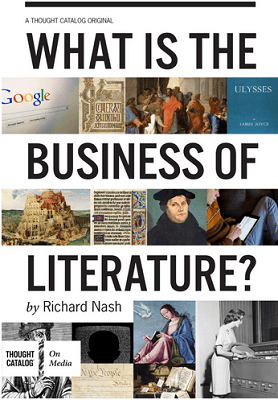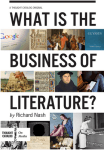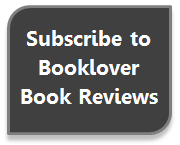Book Review – WHAT IS THE BUSINESS OF LITERATURE? by Richard Nash
 What is the Business of Literature? Synopsis :
What is the Business of Literature? Synopsis :
This is the story of publishing as you’ve never read it before, told by one of the most provocative and informed voices informing its future.
It’s the tale of prophets and storytellers, of entrepreneurs and shop-owners, of those who fashioned the world of book publishing as we know it. Tracing the long road that elevated lowly scribes to god-like authors, that transformed written work to intellectual property, and that leads ever-onward into uncertain and invigorating futures, Nash engages in a sweeping socio-historical survey of book history. In his characteristically brilliant and eccentric voice, avoiding both triumphalism and despair, he argues forcefully that the book is no victim. Instigating as much as reacting, the book has been made and remade since its birth. In the drama of publishing, it remains the protagonist.
Above all, the Business of Literature is an honest assessment of the enterprise of publishing–how we’ve done it, how we do it, and why it’s worth doing in the first place. (Thought Catalog)
BOOK REVIEW
This novella length essay from Richard Nash is both informative and highly compelling reading.
He quickly captured my attention by observing that many of those that see themselves as advocates for literature would take umbrage at it being considered ‘a business’. I’m not one of those people that takes issue with capitalist principles, but acknowledge many in the arts field do have strong opinions on such things.
It is the Exceptionalists, the ones who claim the mantle of defender of the book, who undermine the book by claiming that it is a world unto itself, in need of special protection, that its fragility in the face of the behemoth or barbarian du jour (Amazon, the Internet, comic books, the novel, the printing press, illiteracy, literacy, to name but a handful of purported sources of cultural decline) requires insulation, like the skinny kid kept away from the schoolyard and its bullies.
He points to the critics of publishing (‘the business’) who ‘focus on its corporate or capitalist nature, arguing that the profit motive retards decisions that would otherwise be based on pure literary merit’, and presents the counter argument that capitalism and market forces are actually what brought literature and the author into being in the first place.
In What Is The Business of Literature? Nash considers the technological and societal changes that have in the past and will continue to influence publishing, tackling many common assumptions along the way. He explores the ‘availability heuristic’, the role of the writer before the printing press, the concept of copyright and perceptively highlights the unlikely relationship between small indie presses and book superstores.
While this essay’s subject matter is naturally of interest to book lovers, most appealing for me was Nash’s engaging and persuasive delivery — a sense of confidence and optimism based on sounds principles. Such a refreshing change from the Chicken Little’s of this world.
BOOK RATING: The Story 4.5 / 5 ; The Writing 4.5 / 5

Available from:
Amazon | Kobobooks | Audible
Genre: Non-fiction
This review counts towards my participation in the 2015 Non-Fiction Reading Challenge.
Author Information:
 Richard Nash is a serial entrepreneur in economy of reading and writing. He ran Community and Content for media discovery start-up Small Demons and founded the insurgent publishing start-up Red Lemonade. He previously ran the iconic indie Soft Skull Press for which work he was awarded the Association of American Publishers’ Award for Creativity in Independent Publishing. Books he edited and published landed on bestseller lists from the Boston Globe to the Singapore Straits-Times; on Best of the Year lists from The Guardian to the Toronto Globe & Mail to the Los Angeles Times; Lydia Millet’s Love in Infant Monkeys, was selected as a 2010 Pulitzer Prize finalist; and Vanessa Veselka’s Zazen won the 2011 PEN Award for Best First Novel. In 2010 the Utne Reader named him one of Fifty Visionaries Changing Your World and Mashable.com picked him as the #1 Twitter User Changing the Shape of Publishing. He is an advisor to a number of start-ups operating at the intersection of culture and technology including Safari, BitLit, Inkshares, Paul Carr’s NSFW, Evoke, Connu, Enthrill, Poetry Salon, and The New Inquiry. He has spoken at universities, festivals, conferences and symposia around the world on the history and future of writing, reading and publishing.
Richard Nash is a serial entrepreneur in economy of reading and writing. He ran Community and Content for media discovery start-up Small Demons and founded the insurgent publishing start-up Red Lemonade. He previously ran the iconic indie Soft Skull Press for which work he was awarded the Association of American Publishers’ Award for Creativity in Independent Publishing. Books he edited and published landed on bestseller lists from the Boston Globe to the Singapore Straits-Times; on Best of the Year lists from The Guardian to the Toronto Globe & Mail to the Los Angeles Times; Lydia Millet’s Love in Infant Monkeys, was selected as a 2010 Pulitzer Prize finalist; and Vanessa Veselka’s Zazen won the 2011 PEN Award for Best First Novel. In 2010 the Utne Reader named him one of Fifty Visionaries Changing Your World and Mashable.com picked him as the #1 Twitter User Changing the Shape of Publishing. He is an advisor to a number of start-ups operating at the intersection of culture and technology including Safari, BitLit, Inkshares, Paul Carr’s NSFW, Evoke, Connu, Enthrill, Poetry Salon, and The New Inquiry. He has spoken at universities, festivals, conferences and symposia around the world on the history and future of writing, reading and publishing.
